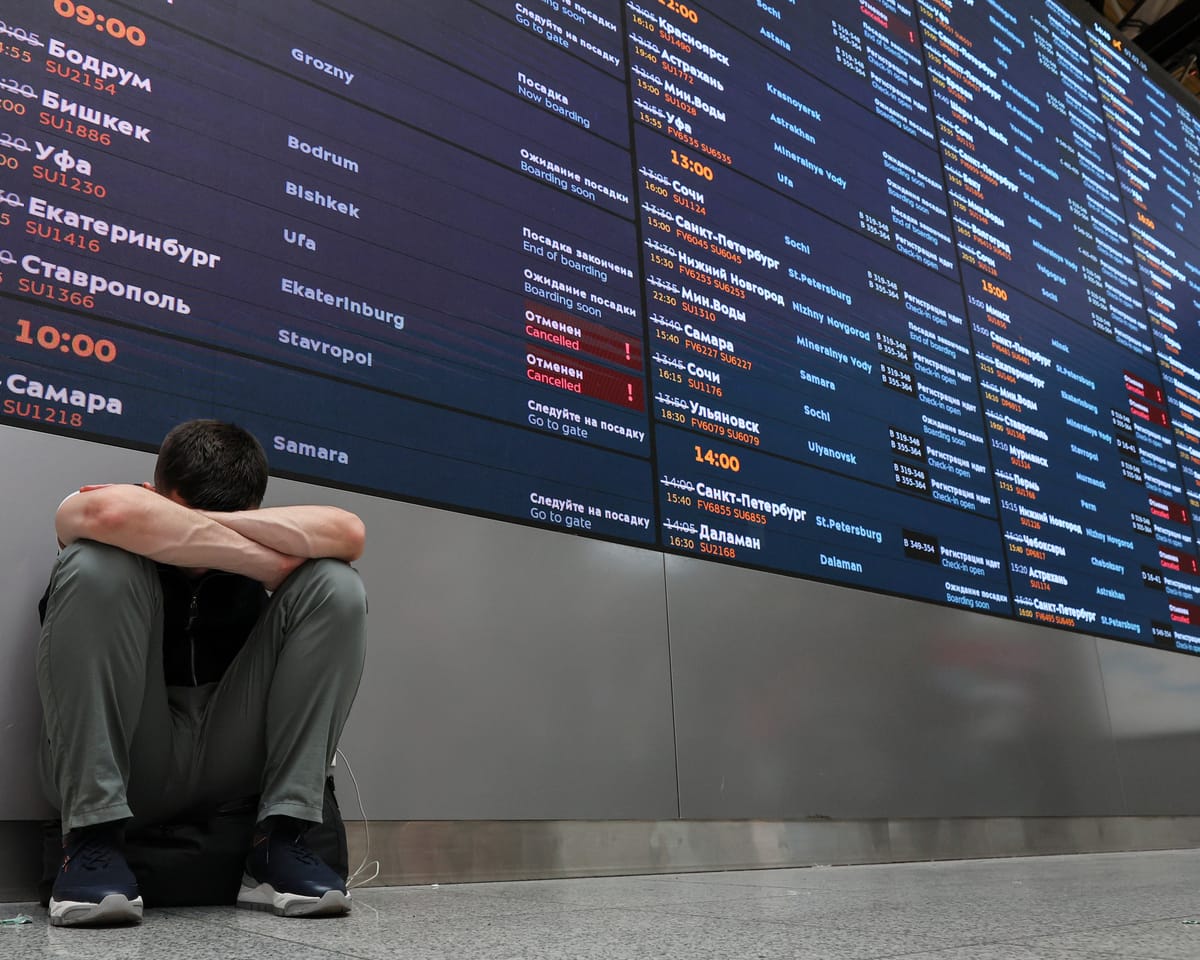Early on Monday last week, Vladimir Shevchuk, 38, his wife, and their two children arrived at Sheremetyevo airport in Moscow, their luggage packed with summer clothes for a much-anticipated vacation in Antalya. Like many others, they had hoped to leave behind the city's heat, only to hear an announcement echo through the terminal: all flights were grounded.
They spent the day—and night—sleeping on the airport floor, waiting for news. By the next morning, they learned their flight had been postponed until later in the week.
“We spent a year saving for this trip,” Shevchuk said. “Our hotel and car rental won’t be refunded, and we can’t just postpone.”
Thousands of travelers, like Shevchuk, have faced unexpected disruptions in recent weeks as Ukrainian drone strikes repeatedly shut down airspace over Moscow.
What started as sporadic incidents has grown into a sustained effort by Ukraine, intended to make ordinary Russians feel the effects of a war many have otherwise witnessed only through news broadcasts.
The disruption pales in comparison to the constant danger Ukrainian civilians endure under missile and drone attacks. But for many Russians, who have remained largely untouched by the direct consequences of the invasion since 2022, the airport closures may be the first real sign that the conflict is affecting their daily lives.
Though few drones penetrate Moscow’s defenses, their low cost compared to the widespread travel delays makes them an effective tool for undermining stability.
Ukraine’s leadership has given up trying to sway Russian public opinion against the war. Instead, the focus appears to be on ensuring the costs of the conflict—beyond just battlefield casualties—become impossible to ignore.
Officials in Kyiv have not formally acknowledged the strategy, but they have stressed that life in Russia cannot continue as usual for a population that still broadly supports the war.
The approach seems to be working: frequent airport shutdowns and canceled vacations have become a common topic of conversation—and increasing frustration—among Russians.
Beyond personal inconveniences, the disruptions carry significant economic repercussions for Russia’s aviation sector, already under pressure from international sanctions.
From July 6-7, during one of the worst waves of cancellations so far, airlines across the country scrapped 485 flights and delayed nearly 1,900 more, according to federal aviation authorities. Over 43,000 passengers were stranded.
Read next

"TikTok star highlights political power of South Africa's unsung culinary treasures"
Solly’s Corner, a popular eatery in downtown Johannesburg, was busy. Pieces of hake and crisp fries crackled in the fryer, green chillies were chopped, and generous amounts of homemade sauce were spread onto filled sandwiches.
Broadcaster and food enthusiast Nick Hamman stepped behind the counter, where Yoonas and Mohammed

Nazi-looted 18th-century portrait found in Argentina after 80 years
There was nothing particularly unusual about the middle-aged couple living in the low, stone-covered villa on Calle Padre Cardiel, a quiet street in the tree-lined Parque Luro neighborhood of Mar del Plata, Argentina’s most well-known coastal city.
Patricia Kadgien, 58, was originally from Buenos Aires, roughly five hours north.

"An aristocrat hid her Jewish lover in a sofa bed amid daring acts of German resistance to the Nazis"
Resistance in the Shadows: Germans Who Defied the Nazis
Growing up, our home had a steadfast rule: nothing German was permitted. No appliances from German manufacturers in the kitchen, no cars from German automakers in the driveway. The decree came from my mother. She was not a survivor of the

